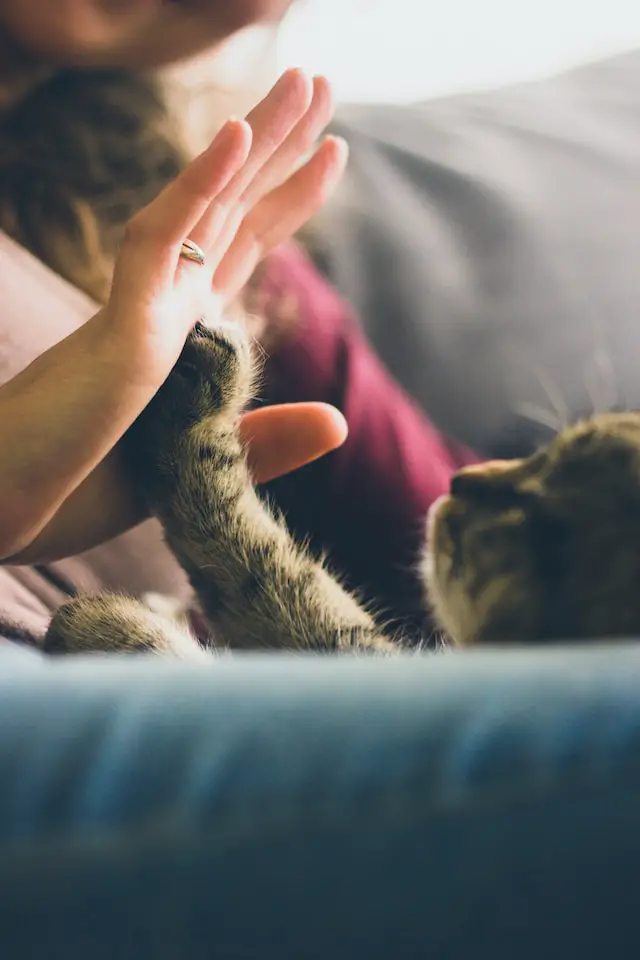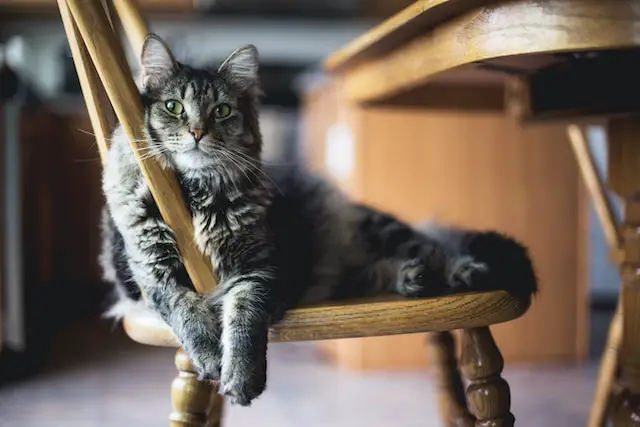If you are looking to get a cat there are a few different options available to you. You can contact a local cat rescue to see if they have a cat that would be suitable. We would also recommend contacting your local vets to see if they know of a cat or kitten looking for a home. We will break down the process of adopting from a rescue in further detail below.
Adopting A Cat From A Rescue
While this process and requirements will differ from rescue to rescue the general adoption path will be similar for most, we will break down the steps in more detail below. First you will be required to fill out an adoption application form. Next a home check will be required. At this stage the rescue volunteers should advise if ok to proceed or if any issues are present that need to be resolved or that mean you are not a suitable candidate for adoption from that rescue. If they say you are OK to proceed you will start the process of picking out a cat that matches your circumstances.
Filling out the adoption application form
The application form is often available to download directly from the rescues website. If not, contact the rescue directly to request one. On the form you will be asked for your name, address and contact details. You will be asked for your occupation and how many hours a day will be away from the house. You will be asked for details of your current pets or any previous pets that you have had. You will have to give details about your accommodation situation, if you own or rent and if your accommodation is near a busy road. They will ask for details of who lives at the house and if there are children what ages they are. Also required will be information on what will happen to the cat when you are caring for it - where it will be during the day, where it will sleep at night and what plans you have if you were to go on holiday.
Fill out the application truthfully to get matched with the right cat. All the animals are in the rescue because their owners couldn’t, or more often wouldn’t, care for them. You will want to ensure the next home the cat receives is perfect for their needs and your own.
What is involved in a home check
Once the application form has been submitted to the rescue they will contact you to arrange a home visit. A volunteer will come to your house to meet you and your family and see where the cat will be living. They are not coming to make judgement on your suitability to own a cat. The aim is to match the right cat with the right family.
In most cases the volunteer just relays the information back to the rescue and does not make any decision themselves. They will ask questions similar to what is on the application form and review the setup you have for your new cat.
What happens after the home check
After the home check the rescue should provide you with feedback. They may recommend some changes before they can allow you to adopt a cat. In general these recommendations are based on years of experience on adoptions that did not work out so do not be offended if they suggest something that needs to be changed. Some rescues rehome to indoor homes only. Others require that cats can only be rehomed in pairs. If you are unhappy with a recommendation or if they have advised that they can not at this time rehome a cat to you ask for the reason why. It may be something you can correct to the benefit of yourself and your future cat.

Selecting your new cat
So you have finally made it to the last but most important stage. While the earlier stages can be slow as you are waiting on volunteers to get back to you and to do the home check this stage is definitely good to take your time with. Depending on the current age of the cat that you are interested in, this is a decision that may affect the next 10 to 15 years of your life so don't rush it. If the rescue allows it, fostering the cat with a view to adopt is always an excellent idea. This will give you time to see if you and the cat are a good match.
How much does it cost to adopt from a rescue
This will vary from rescue to rescue, but will be in the range of 150 to 300 euros. You will often hear ‘If I am adopting, why do I need to pay? Am I not helping you by taking the dog?’
Your donation covers kennelling, food, vet bills, spay/neuter, microchip and vaccination of your cat. Rescues are a non-profit organisation and are always in real need of extra funds. Chances are the required donation will not even cover the costs paid by the rescue for the care of the cat during its time there. The more you give ensures that they can pay the cost of the next cat they will take in too.
Frustrations with the process
The biggest complaint I usually hear when people try to adopt a cat instead of rehoming one from elsewhere is the slowness of the process. It can often take some weeks for the rescue to get back to potential adopters. This is due to the rescue being mainly staffed or fully staffed by volunteers. These people will have full time jobs and families and will only have a small amount of time per week to commit to the rescue duties. As you are looking to commit to the lifetime of an animal which may be 10 to 15 years or more please be patient and trust that you will find a suitable cat from a rescue.
We would also advise contacting more than one rescue. If there are more in your area. While you may not meet the requirements of one rescue that does not mean all rescues will have that same requirement.

